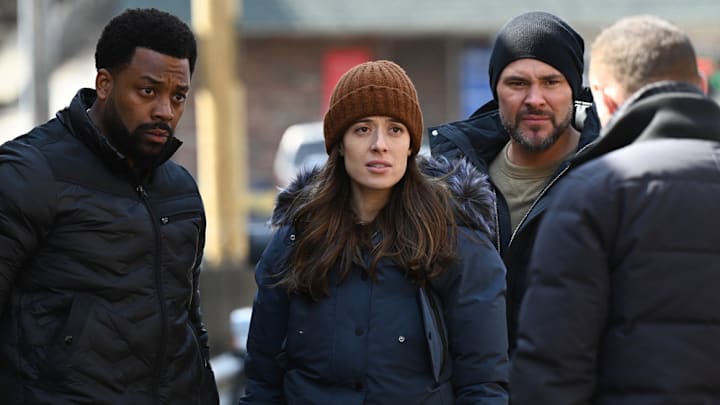Chicago PD prides itself on authenticity. Sure, some of the storylines that take place in the show don't happen in real life, but the tactics and the procedures practiced by the IU team are intended to be as realistic as possible.
Before any of the cast members were allowed to step in front of the camera, they were subjected to three months of intensive training with retired S.W.A.T. members and real Chicago Police officers. It shows in the final product. Another thing that Chicago PD does a good job of replicating from real police situations is the use of call signs.
Call signs are used to report crimes to police dispatch

According to crime author Sue Coletta, a call sign is "how a police officer is identified while they are patrolling the streets in their cars and reporting to crime scenes. Whenever they talk to dispatch, they will state their call sign."
While it may be assumed that the actors on Chicago PD are simply told to look and act as though they are police officers, each of them have actually been given a call sign specific to their character, so that they can better sell the policing experience onscreen.
The calls signs for each of the characters are as follows:
Hank Voight = 5020
Erin Lindsay = 5021 Lincoln
Jay Halstead = 5021 George
Antonio Dawson = 5021 Frank
Adam Ruzek = 5021 Ida
Hailey Upton = 5021 Henry
Kim Burgess = 5021 Eddie
Kevin Atwater = 5021 David
The IU's call sign has been consistent for the entire show

The call signs have been consistent throughout the entire show, and regardless of what season or episode you are watching, you will hear characters like Hank Voight (Jason Beghe) or Kevin Atwater (LaRoyce Hawkins) reciting the same exact call sign into their walkie talkie or police radio.
It may seem confusing to parcel, given that most of the team members have the same number combination, but the repeating "5021" is actually used to identity the IU within the wider Chicago police department. Voight's is slightly different, "5020" to denote that he's the leader of the unit.
